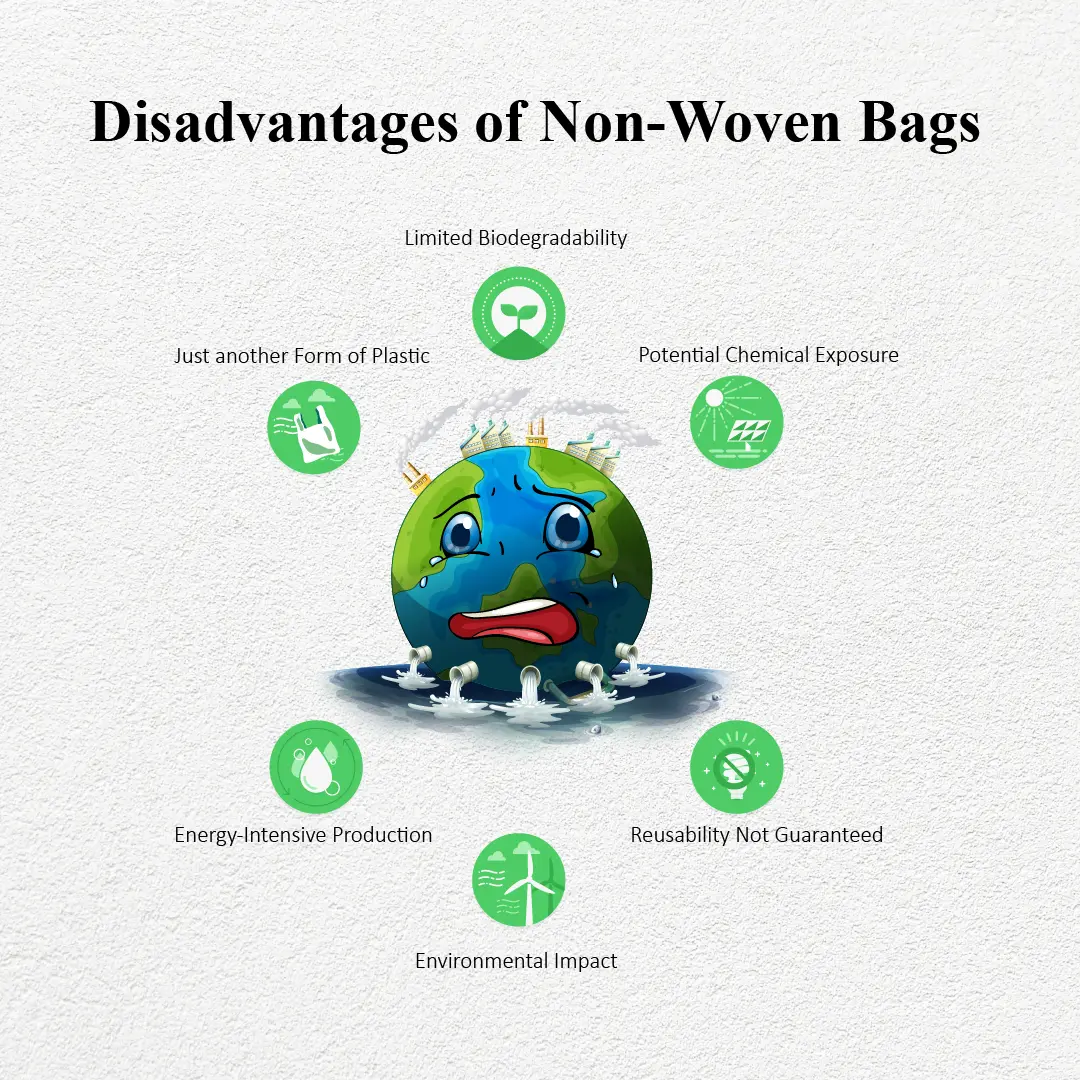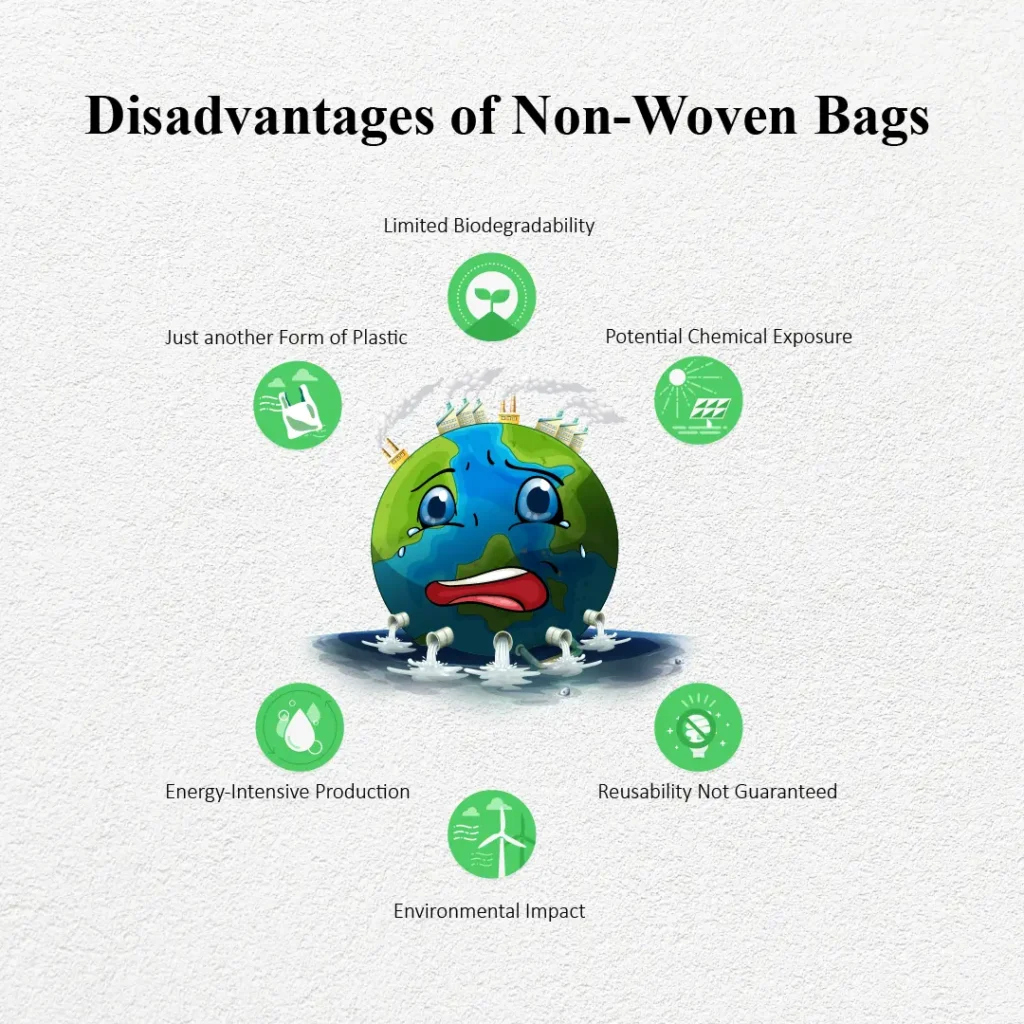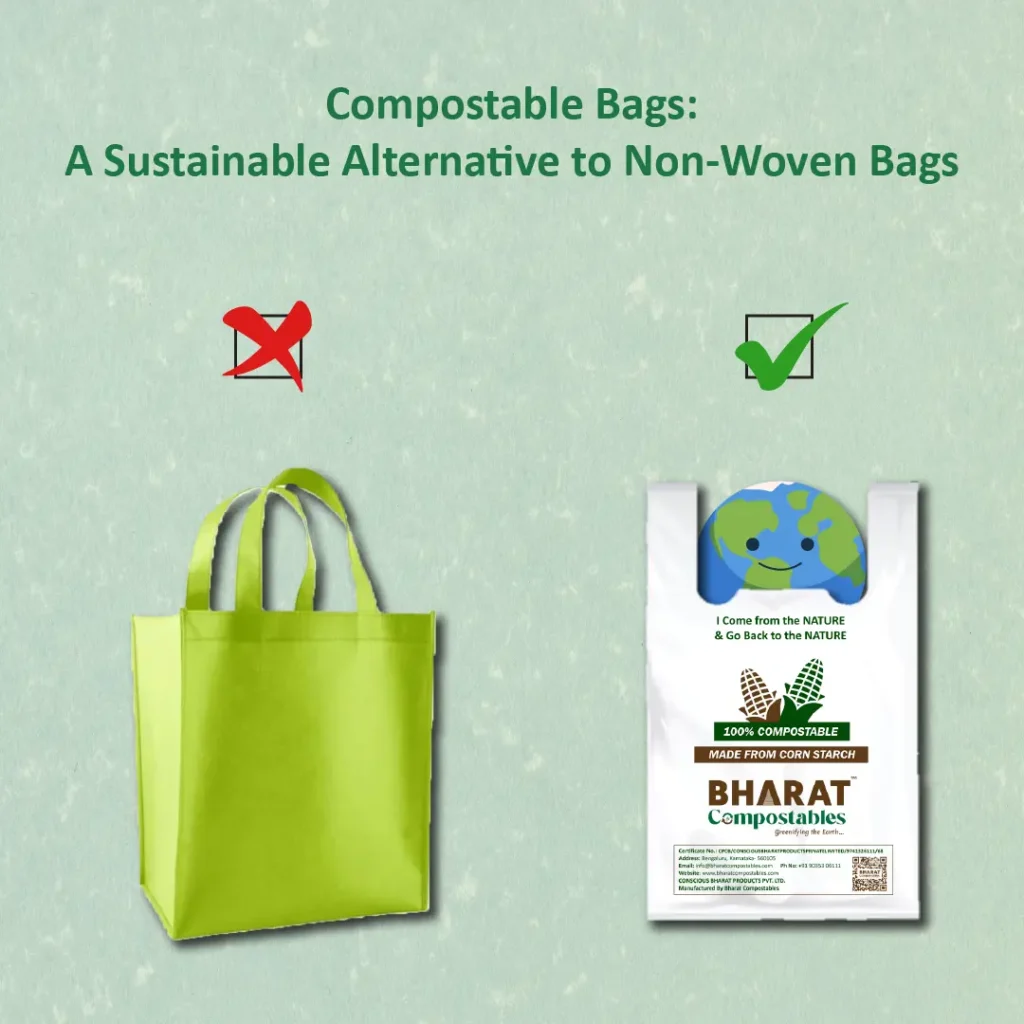
Although non-woven bags are eco-friendly in the sense that they can be reused over and over again, they are not entirely eco-friendly due to what they are made of. Both polypropylene and polyester are forms of plastic that are created as a result of refining crude oil. To make polypropylene and polyester, crude oil must be refined with different chemicals and heavy manufacturing processes in order to create plastic polymers and give them certain characteristics.
There is the potential for pollution throughout the process of making plastic, including during the collection of the crude oil and the refinement of it. Pollution could come in the form of an oil spill as well as air pollution through greenhouse gas emissions and soil and water pollution as a result of chemicals being leached or not being disposed of properly. The process of turning the polypropylene and polyester polymers into bags is not as bad for the environment as the process of making the polymers in the first place.
Do Non-Woven Bags Shed Microplastics?
Because they are made from synthetic fibres, non-woven bags do have the potential to shed microplastics into the environment and the ocean as they break down over time due to weathering.
It’s estimated that synthetic textiles produce around 35% of microplastic pollution in the ocean, which is one of the largest sources of microplastics.
Disadvantages of Non-Woven Bags
Negative Environmental Impact: They have a negative impact on the environment. Most non-woven bags are made from synthetic materials like polypropylene, which are derived from fossil fuels.
Recycling Challenges: Although many non-woven bags are recyclable, the recycling infrastructure for these bags may not be as readily available or well-established in some regions. As a result, a significant number of non-woven bags may end up in landfills or as litter, reducing their environmental benefits.
Non – Biodegradability: While non-woven bags are being marketed as biodegradable bags, but they are not biodegradable. Those made from traditional synthetic fibres like polypropylene can persist in the
environment for a long time, contributing to the global plastic waste problem.
Potential Chemical Exposure: Some non-woven bags may contain chemicals or additives used in the production process, which could potentially leach into food items or other products placed inside the bags.
Conclusion
Most non-woven bags are made from polypropylene and are marketed as being more eco-friendly than single-use plastic bags, most of the customers usually get confused and believe that non – woven bags are just cloth bags and hence think that it is sustainable. But the truth is they are made from a type of plastic themselves which is not the most eco-friendly or sustainable material. Using compostable bags instead of non-woven bags can be a more environmentally friendly option, as compostable bags are designed to break down into natural elements under specific conditions.



